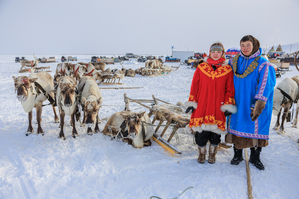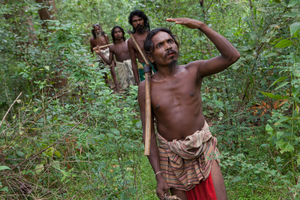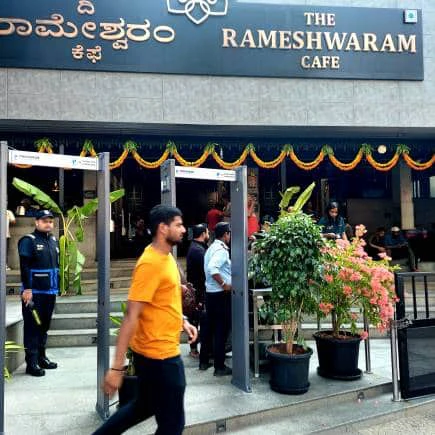Rosneft subsidiary organises EcoArctic forum in Russia

RN-Vankor, a subsidiary of Rosneft — a major Russian oil and gas company — recently organised a unique EcoArctic forum in the Krasnoyarsk region in the north of Russia.
The EcoArctic forum, which has evolved into an annual occurrence, provides an open platform for government agencies, local communities, and members of the academia to engage in productive dialogue about safeguarding the Arctic’s fragile ecosystems and preserving traditional livelihoods of the Taymyr Peninsula’s indigenous communities.
Taymyr is Russia’s largest peninsula and the northernmost mainland of the Eurasian continent. The peninsula lies beyond the Arctic Circle, with winters long and cold, and summers short and cool.
The severe climate determines the way of life of the small indigenous peoples inhabiting this remote region. The traditional local industry is reindeer herding.
The forum’s main event featured the Reindeer Herder’s Day, local indigenous peoples’ most important celebration of the year.
The event was held with the oil company’s support in the town of Nosok located in Taymyr’s Dolgano-Nenets Municipal District. The town is home to some two thousand inhabitants, the majority of whom are members of indigenous small-numbered peoples.
As part of the Reindeer Herder’s Day, residents competed in a series of traditional contests including reindeer-drawn sled races, took part in a native costume contest, and treated the festival’s guests to some of the Far North’s traditional delicacies.
All winners were presented with awards provided courtesy of RN-Vankor. The festival culminated in a concert given by local performers.
In addition, as part of the EcoArctic forum, a roundtable discussion over RN-Vankor’s grant programme to support scientific, environmental, and social research that carries potential practical benefits for Taymyr’s Dolgano-Nenets communities. The roundtable discussion was held in the centre of the Krasnoyarsk region, the city of Krasnoyarsk.
Representatives of government agencies and non-governmental organisations, as well as scientists and conservationists, participated in the discussion.
In particular, biologists from the Arctic Research and Design Centre for Continental Shelf Development told the forum participants about their comprehensive Ecology programme that the Centre is currently implementing together with the Russian Federation’s Ministry of Natural Resources and Environment, and about new areas of focus of Rosneft’s biomonitoring activities in the north of the Krasnoyarsk region.
Experts from RN-Shelf-Arctic, another one of Rosneft’s subsidiaries, shared their best practices in preserving the Arctic’s native plant species that had been put on the Red Lists of the Russian Federation and of the Nenets Autonomous District, respectively.
Rosneft and its subsidiaries annually implement unique projects to support indigenous people in the regions where they operate. The EcoArctic forum, for example, was held on the territory where Rosneft’s flagship project Vostok Oil is being implemented.
Vostok Oil is the largest project of the global oil and gas industry implemented by Rosneft in the north of the Krasnoyarsk region. Rosneft subsidiary RN-Vankor, the organiser of the EcoArctic forum, is the operator of the Vankor and Payakh cluster fields, which are part of Vostok Oil.
The resource base of the Vostok Oil project exceeds 6.5 billion tonnes of premium low-sulphur oil. Vostok Oil has 52 licence areas in the north of the Krasnoyarsk region and in the Yamalo-Nenets Autonomous District, including 13 oil and gas fields.
The participants of the roundtable discussion noted that the development of the large-scale Vostok Oil project in Taymyr will contribute to the growing potential for cooperation between the region and the oil industry, and will be facilitated by the EcoArctic forum.





